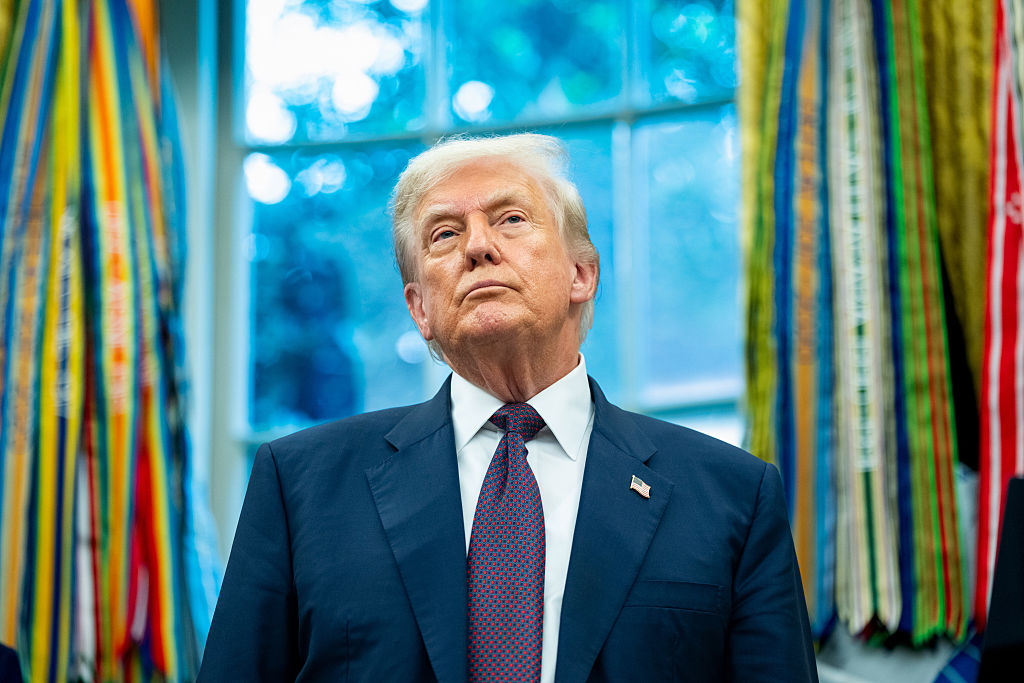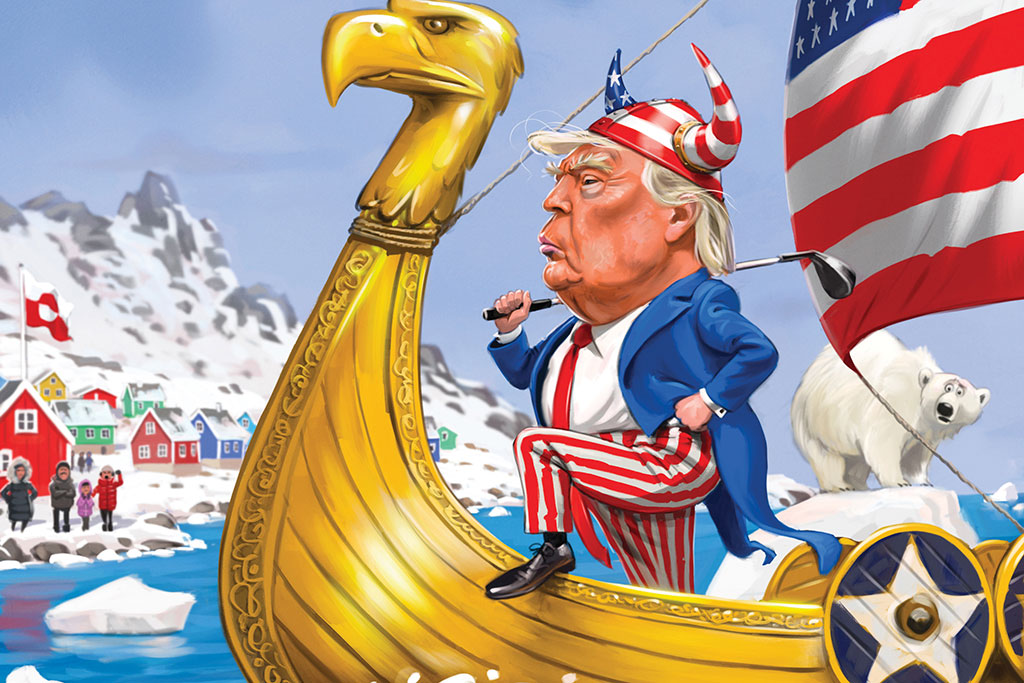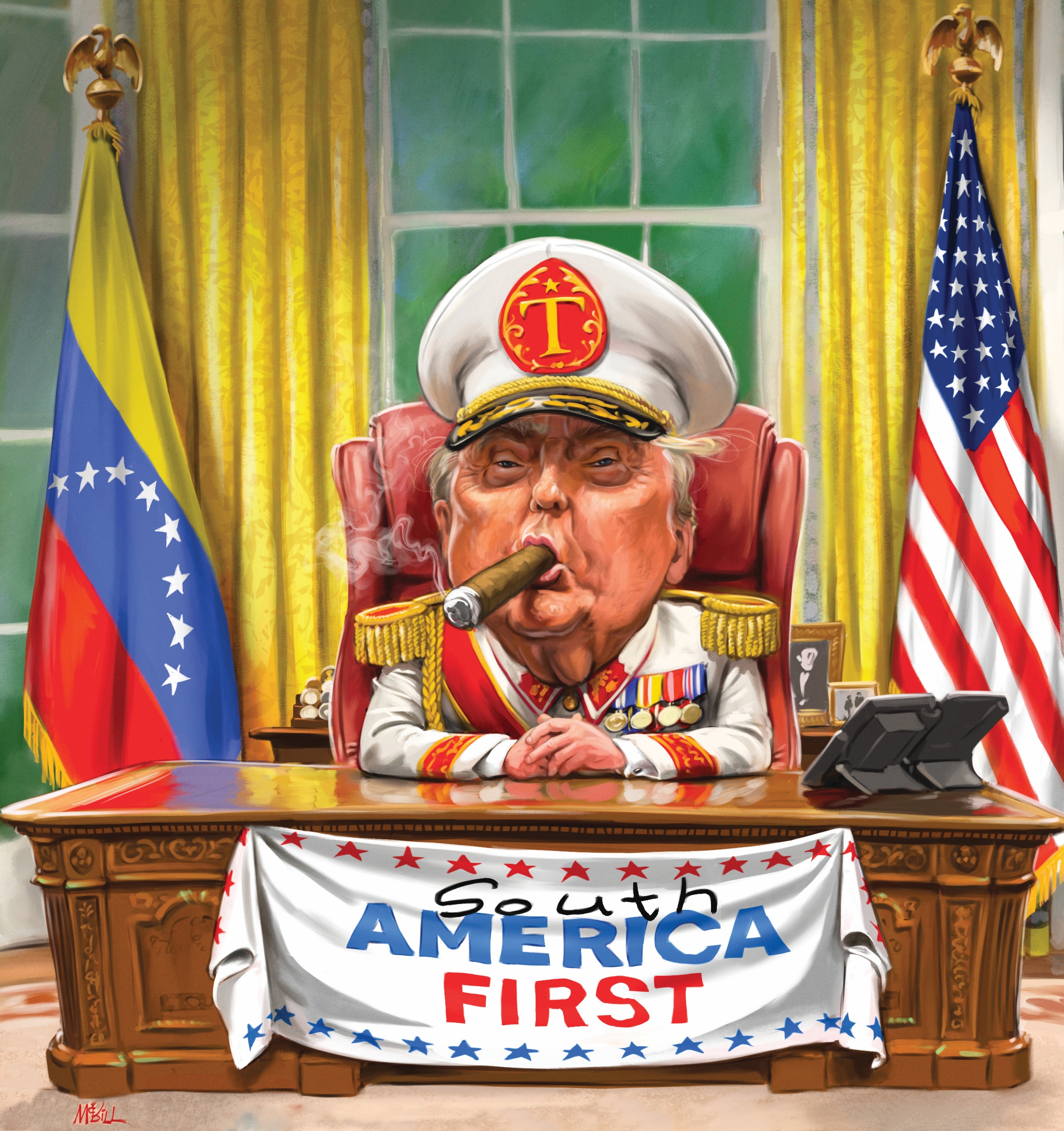How Trump's dog deals will damage global trade with the US
Some commentators are hailing Trump’s trading savvy. Are they right?

Get the latest financial news, insights and expert analysis from our award-winning MoneyWeek team, to help you understand what really matters when it comes to your finances.
You are now subscribed
Your newsletter sign-up was successful
Want to add more newsletters?

Twice daily
MoneyWeek
Get the latest financial news, insights and expert analysis from our award-winning MoneyWeek team, to help you understand what really matters when it comes to your finances.

Four times a week
Look After My Bills
Sign up to our free money-saving newsletter, filled with the latest news and expert advice to help you find the best tips and deals for managing your bills. Start saving today!
Trump’s EU deal will help blue-collar workers.” So believes Nicole Russell, a columnist for USA Today, “Critics can hate Trump’s personality all they want,” she says, “but the president’s ability to forge trade deals that favour American workers shouldn’t be discounted.” The gist of Russell’s argument is that the deal includes requirements for Europe to buy energy and military equipment from the US. This kind of stuff is made by people wearing hard hats or wielding power tools – that is, by “blue collar” workers.
Russell must not have much free time. If she had, she might have thought this through a bit further. In the first place, why should US government policy favour one group of workers (blue collar) over another group (white collar)? In the second place, the tariffic negotiations also favour very big businesses – oil and defence. How is that a plus for the guys who mostly work for small businesses?
In the third place, the same policies that will supposedly favour US industry output with a 15% tariff on imports also call for taxes of 50% on steel and aluminium, which must be paid by US carmakers and ultimately by car buyers. What good does that do the guy who needs wheels to get to work?
MoneyWeek
Subscribe to MoneyWeek today and get your first six magazine issues absolutely FREE

Sign up to Money Morning
Don't miss the latest investment and personal finances news, market analysis, plus money-saving tips with our free twice-daily newsletter
Don't miss the latest investment and personal finances news, market analysis, plus money-saving tips with our free twice-daily newsletter
In the fourth place, who does she think pays for the tariffs? Tariffs are essentially a tax, paid by American importers – and then passed along to US consumers. White collar, blue collar or no collar at all – they’re all going to pay. Who else would? Dogs don’t pay tariffs. Inanimate objects don’t. In the end, all government revenues must come from the people.
Has Trump "achieved the remarkable"?
None of it makes sense. The US is running a $2 trillion deficit and heading for a financial crisis. But the trade deals are seen as a political “win” for Trump.
Trump has, says The Wall Street Journal, “achieved the remarkable: raising tariffs by more than the notorious Smoot-Hawley Tariff Act of 1930, while – it appears – avoiding the destructive trade war that followed”. Including the deal struck with the EU, the US will impose an effective tariff rate of about 15% on its trading partners, by far the highest since the 1930s, according to JPMorgan Chase.
But will the deals stick? Trump’s big trade deal with Japan is already falling apart, says The New Republic. A report from the Financial Times shows that US and Japanese officials aren’t seeing eye-to-eye on what exactly was agreed. Mireya Solís of the Brookings Institution told the FT “both sides made promises we can’t be sure will be kept” and “there are no guarantees on what the actual level of investments from Japan will be”. It’s not exactly a done deal with Europe either. Fred Hutchison, CEO of LNG export group LNG Allies, told Energy Intel that both sides can do a lot to encourage additional commercial deals in the LNG sector, but “neither government has any control over what happens commercially”.
Trump got his deals thanks to leverage over other countries’ deep economic and security ties to the US, says the WSJ. But in the coming years, “that leverage will wane as those countries cultivate markets elsewhere and build up their own militaries. The resulting international system will be less dependent on the US – and less stable.”
The markets are less stable too. Already teetering at the tippy-top of their trading range, stocks have become even more overvalued. More importantly, Trump has raised the cost of trading with the US. He must also have increased the desire not to trade with it at all.
For more from Bill, see bonnerprivateresearch.com
This article was first published in MoneyWeek's magazine. Enjoy exclusive early access to news, opinion and analysis from our team of financial experts with a MoneyWeek subscription.
Get the latest financial news, insights and expert analysis from our award-winning MoneyWeek team, to help you understand what really matters when it comes to your finances.
Bill Bonner is an American author of books and articles on economic and financial subjects. He is the founder of Agora Financial, as well as a co-founder of Bonner & Partners publishing.
-
 Should you buy an active ETF?
Should you buy an active ETF?ETFs are often mischaracterised as passive products, but they can be a convenient way to add active management to your portfolio
-
 Power up your pension before 5 April – easy ways to save before the tax year end
Power up your pension before 5 April – easy ways to save before the tax year endWith the end of the tax year looming, pension savers currently have a window to review and maximise what’s going into their retirement funds – we look at how
-
 How a dovish Federal Reserve could affect you
How a dovish Federal Reserve could affect youTrump’s pick for the US Federal Reserve is not so much of a yes-man as his rival, but interest rates will still come down quickly, says Cris Sholto Heaton
-
 New Federal Reserve chair Kevin Warsh has his work cut out
New Federal Reserve chair Kevin Warsh has his work cut outOpinion Kevin Warsh must make it clear that he, not Trump, is in charge at the Fed. If he doesn't, the US dollar and Treasury bills sell-off will start all over again
-
 How Canada's Mark Carney is taking on Donald Trump
How Canada's Mark Carney is taking on Donald TrumpCanada has been in Donald Trump’s crosshairs ever since he took power and, under PM Mark Carney, is seeking strategies to cope and thrive. How’s he doing?
-
 Why does Trump want Greenland?
Why does Trump want Greenland?The US wants to annex Greenland as it increasingly sees the world in terms of 19th-century Great Power politics and wants to secure crucial national interests
-
 'Investors should brace for Trump’s great inflation'
'Investors should brace for Trump’s great inflation'Opinion Donald Trump's actions against Federal Reserve chair Jerome Powell will likely stoke rising prices. Investors should prepare for the worst, says Matthew Lynn
-
 The state of Iran’s collapsing economy – and why people are protesting
The state of Iran’s collapsing economy – and why people are protestingIran has long been mired in an economic crisis that is part of a wider systemic failure. Do the protests show a way out?
-
 Why does Donald Trump want Venezuela's oil?
Why does Donald Trump want Venezuela's oil?The US has seized control of Venezuelan oil. Why and to what end?
-
 Market predictions for 2026: Will Dubai introduce an income tax?
Market predictions for 2026: Will Dubai introduce an income tax?Opinion My 2026 predictions, from a supermarket merger to Dubai introducing an income tax and Britain’s journey back to the 1970s